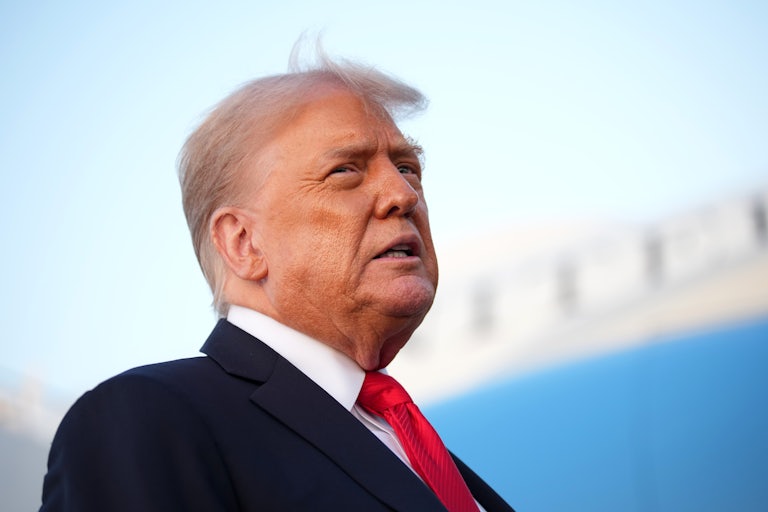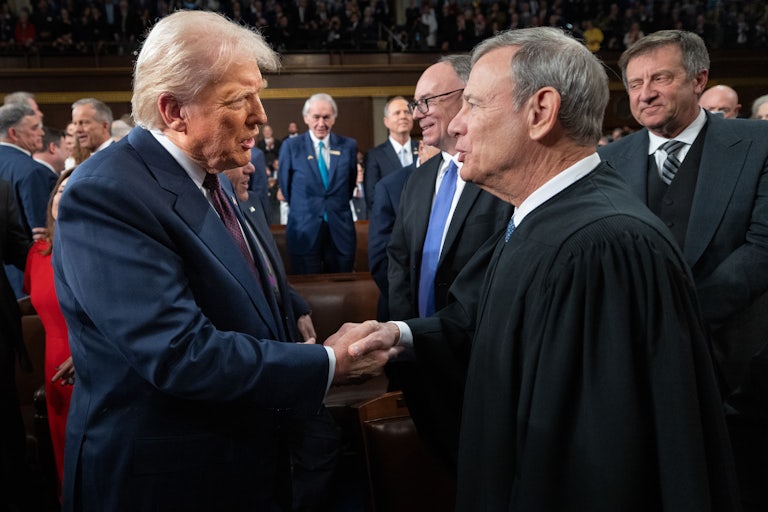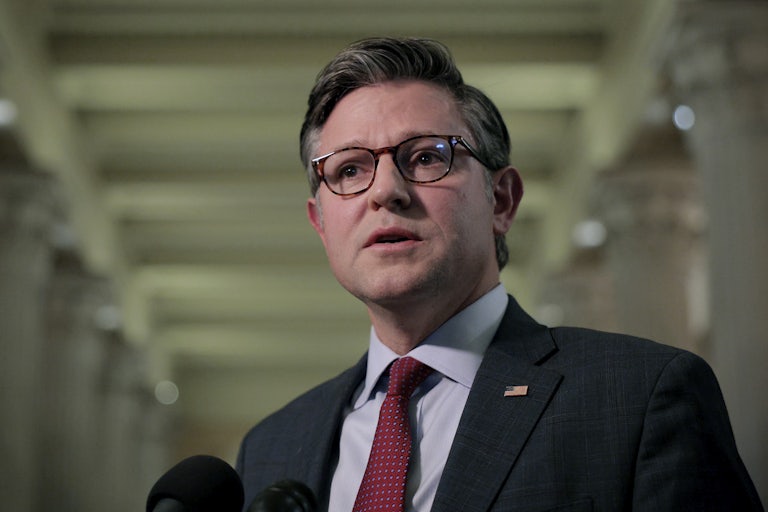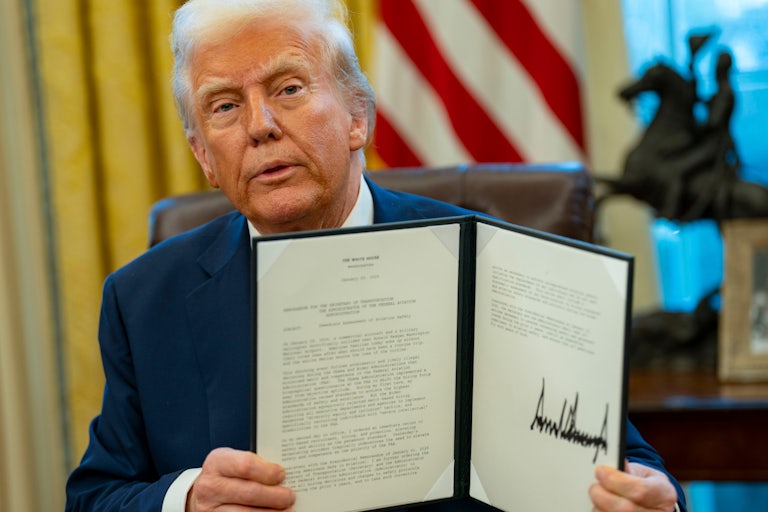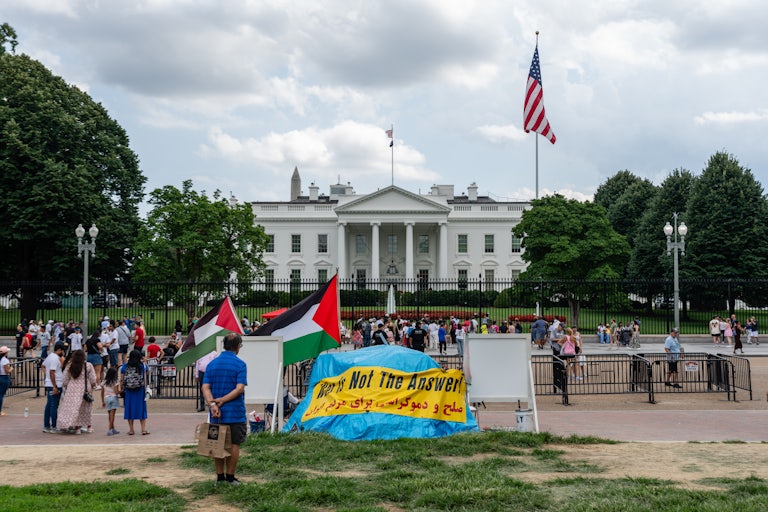Sotomayor Slams SCOTUS for Unconscionable Racial Profiling Decision
Every liberal justice on the Supreme Court issued a scathing dissent in the decision to let ICE resume its racial-profiling tactics.
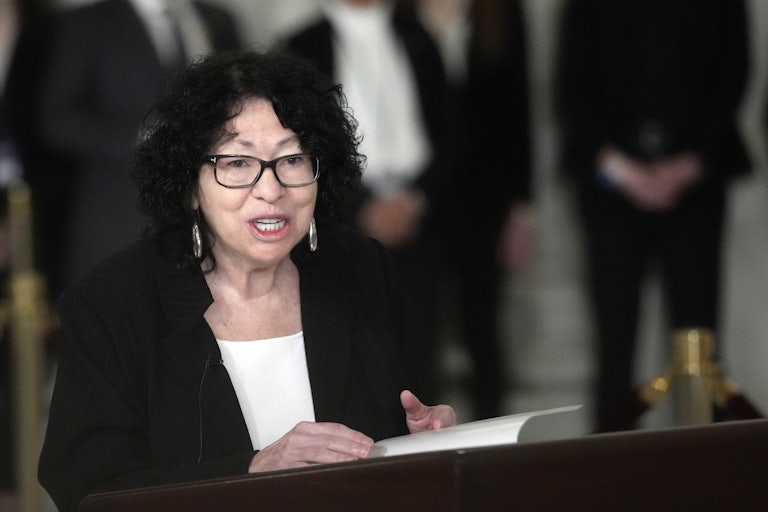
The Supreme Court on Monday accepted another emergency request from the Trump administration—this time lifting a lower court’s order that prohibited roving immigration agents in Los Angeles from profiling individuals on the basis of race, language, job, or location.
The majority ruled without explanation, while Justice Brett Kavanaugh filed a concurring opinion. Justice Sonia Sotomayor, joined by fellow liberal justices Elena Kagan and Ketanji Brown Jackson, took her conservative colleagues to task in a blistering dissent.
“Countless people in the Los Angeles area have been grabbed, thrown to the ground, and handcuffed simply because of their looks, their accents, and the fact they make a living by doing manual labor,” wrote the court’s eldest liberal justice. “Today, the Court needlessly subjects countless more to these exact same indignities.”
The Fourth Amendment “prohibits exactly what the Government is attempting to do here,” Sotomayor observed, as the Trump administration has “all but declared” Latinos in low-wage jobs “fair game to be seized at any time, taken away from work, and held until they provide proof of their legal status to the agents’ satisfaction.”
Kavanaugh’s concurrence, Sotomayor noted, falsely assumed agents are just conducting “brief stops for questioning” and seizing only undocumented immigrants.
In reality, they “are seizing people using firearms, physical violence, and warehouse detentions,” and whisking away American citizens as well. Further, she wrote, Kavanaugh incorrectly places the burden of proof during immigration stops not on law enforcement but on “an entire class of citizens to carry enough documentation to prove that they deserve to walk freely”—essentially creating “a second-class citizenship status” that is incompatible with the Constitution.
In Trump’s second term, the Supreme Court has repeatedly enabled the president’s lawless excesses via its emergency docket—overruling lower courts that halt his actions, oftentimes, as on Monday, providing little or no explanation. Sotomayor’s dissent railed against these tendencies, calling the decision “yet another grave misuse of our emergency docket,” whose lack of explanation is “troubling.”
“In the last eight months, this Court’s appetite to circumvent the ordinary appellate process and weigh in on important issues has grown exponentially,” she pointed out. “Its interest in explaining itself, unfortunately, has not.”
Whereas there are sometimes good reasons for issuing orders without explanation, other “situations simply cry out for an explanation,” Sotomayor said—“such as when the Government’s conduct flagrantly violates the law, or when lower courts and litigants need guidance about the issues on which they should focus.”
To conclude, Sotomayor wrote that Monday’s ruling means the Fourth Amendment may no longer protect the rights of people “who happen to look a certain way, speak a certain way, and appear to work a certain type of legitimate job that pays very little. Because this is unconscionably irreconcilable with our Nation’s constitutional guarantees, I dissent.”
